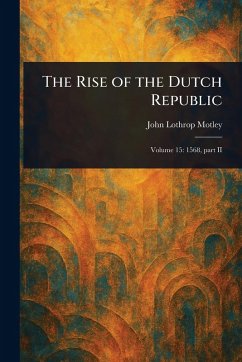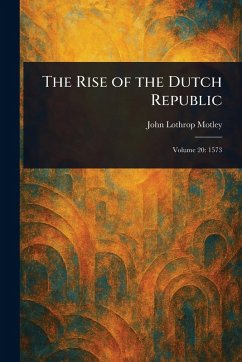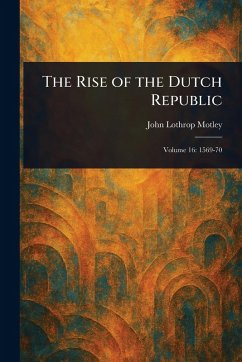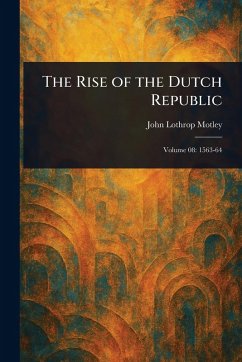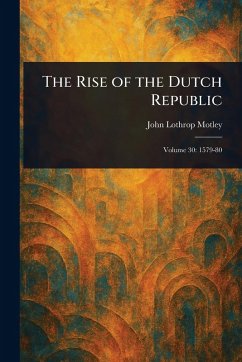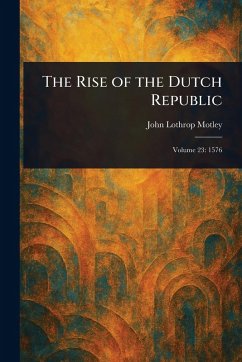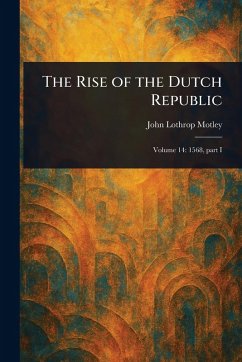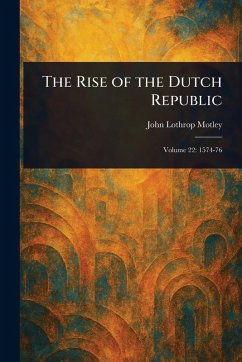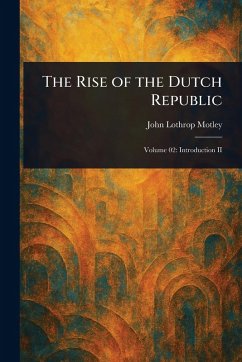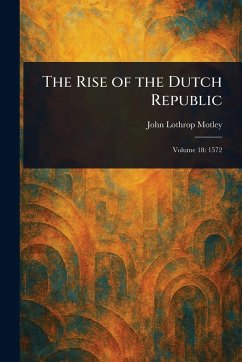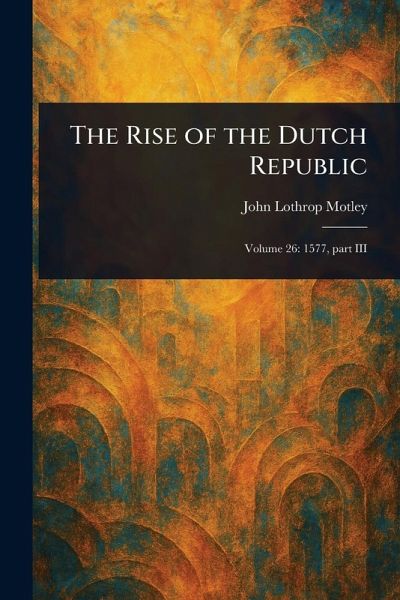
The Rise of the Dutch Republic
Versandkostenfrei!
Versandfertig in über 4 Wochen
14,99 €
inkl. MwSt.

PAYBACK Punkte
7 °P sammeln!
Delve into the tumultuous 16th-century Netherlands with John Lothrop Motley's "History of the United Netherlands, 1577, Part 2." This meticulously researched volume offers a detailed examination of Dutch history during a pivotal period marked by religious upheaval and the burgeoning Reformation. Explore the complex interplay of political and religious forces shaping the nation, specifically focusing on church history and the challenges faced during this era. Motley's work provides valuable insight into the historical context of the Netherlands during a time of profound change. A cornerstone of...
Delve into the tumultuous 16th-century Netherlands with John Lothrop Motley's "History of the United Netherlands, 1577, Part 2." This meticulously researched volume offers a detailed examination of Dutch history during a pivotal period marked by religious upheaval and the burgeoning Reformation. Explore the complex interplay of political and religious forces shaping the nation, specifically focusing on church history and the challenges faced during this era. Motley's work provides valuable insight into the historical context of the Netherlands during a time of profound change. A cornerstone of historical literature concerning the Benelux countries and the Renaissance, this book remains a vital resource for anyone interested in understanding the roots of Dutch identity and the impact of the Reformation on European history. Experience a window into a nation forging its path amidst religious and political strife. This work has been selected by scholars as being culturally important, and is part of the knowledge base of civilization as we know it. This work is in the public domain in the United States of America, and possibly other nations. Within the United States, you may freely copy and distribute this work, as no entity (individual or corporate) has a copyright on the body of the work. Scholars believe, and we concur, that this work is important enough to be preserved, reproduced, and made generally available to the public. We appreciate your support of the preservation process, and thank you for being an important part of keeping this knowledge alive and relevant.





